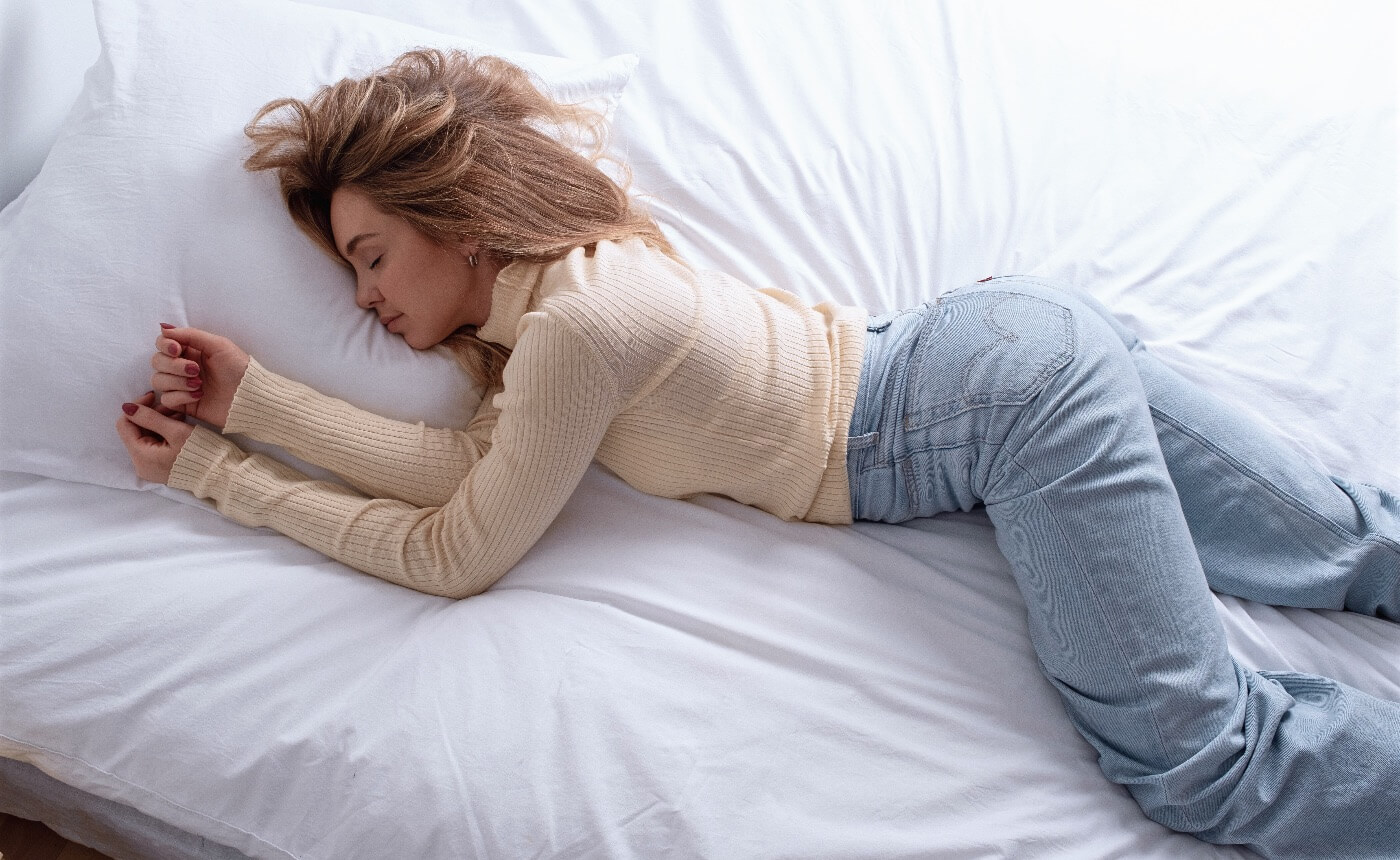The average person spends around one third of their life sleeping. There is no doubt that sleep is vital for our mental health and general wellbeing. It helps us to maintain good physical and mental health and gives our bodies the chance to repair, recover and get ready for the next day.
Sleep and wellbeing are closely linked. Poor sleep can result in poor health and in turn poor health can lead to poor sleep. It can become a vicious cycle.
Without enough sleep you may experience impaired judgement, slower reaction times, a tired and foggy brain, memory loss or depression. Lack of sleep may hinder your ability to function during the day.
Almost all the systems within our body are impacted by the quality and quantity of the sleep that we get, especially our brain.
Therefore, sleep deprivation can have very serious implications on anxiety levels, which in turn, may impact your ability to cope with anxiety and stress when you are awake.
Recent research has found strong connections between insufficient sleep and anxiety, showing that a sleepless night can increase anxiety by up to 30%.
Getting the right amount of sleep will allow your brain to recharge and improve focus, concentration, and mood.
But, having anxiety may impact upon your ability to fall asleep or stay asleep during the night, this constant interruption of sleep will most likely lead to increased anxiety the next day. This pattern may cause inadequate sleep to become a source of anxiety and you may find yourself worrying that you will be unable to sleep the next day.
Therefore, addressing sleep and sleep disorders is essential for mental health treatment.
It can be overwhelming to completely change your routine, so here are some small and manageable tips to help you sleep better when you have anxiety.
Create a Sleep schedule
As intense as this may sound, creating a healthy sleeping schedule can ensure you get good quality sleep. Find a suitable time to go to bed and wake up and try and stick to these set times. This will provide your body and mind with a routine and should help you develop a sleep cycle.
Exercise
Exercise is also known for improving mental health as it releases mood-enhancing endorphins.
Getting outside for a walk and fresh air even for just 20 minutes a day can help improve sleep patterns. Yoga can also be very beneficial in allowing us to slow down and reduce anxiety and stress.
But avoid exercising in the evenings as it may keep you awake.
Avoid Caffeine, Drugs, Cigarettes, And Alcohol
If possible, try to avoid these things, especially before bed as they can stimulate the brain and inhibit your ability to sleep. Drinking too much alcohol before bedtime can increase your heart rate, and prevent the restorative rapid eye movement (REM) sleep stage, which will keep you awake or in a light sleep
Relaxing Bedtime Routine
Creating a relaxing routine is very important. Give yourself time to unwind each evening. This could be having a warm drink, a nice bubble bath, reading a book, listening to calming music or meditating. Deep breathing can also really help to relax and calm down.
Essentially take the time to do whatever you find relaxing and make sure to fit it in before bedtime.
Create a positive sleep environment
This may sound obvious, but as best you can, try and use your bedroom as a bedroom.
This may be hard as most of us are now working from home but if possible, avoid working or watching tv from bed. Only use your bed for sex, masturbation or sleep.
Control the light, sound and temperature of your room. Personal preferences may vary but try to limit light and sound around you and cool your room down.
Limit screen time
This is hard but if you can, try to limit your screen time an hour before you sleep. Phones, tablets and TV emit blue light that keeps our brain awake. As well as this, social media, the news or work emails can also trigger anxiety, and cause us to get stressed.
If this is too difficult, make sure to switch your phone to evening mode to reduce blue light.
Don’t just lay there
If you have tried but still cannot get to sleep, then get up. Allow yourself to go and do something else such as reading or listening to music. Try to keep your mind off falling asleep, focusing on falling asleep can keep you awake feeling anxious and overwhelmed.
If your lack of sleep and increased anxiety is ongoing and hard to manage, the most important thing to do is to speak to someone about it. Contact your doctor or therapist and seek help. Sleep problems can be treatable with the correct advice.
Whatever steps you manage to do, you should feel proud of yourself. Creating a new routine can be hard but we hope these tips can help.

